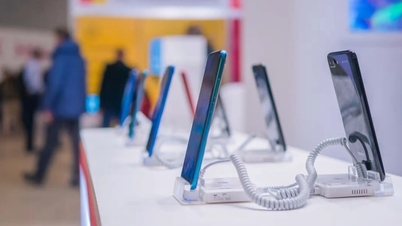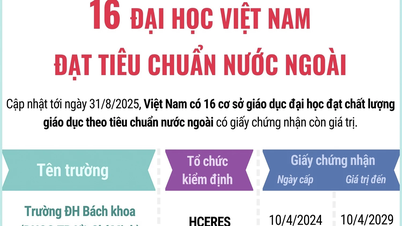
The Department of Cyber Security and High-Tech Crime Prevention ( Hanoi City Police) said that personal data includes information such as full name, date of birth, address, phone number, ID number, bank account information, shopping habits, hobbies...
All of this information, no matter how small, can be used by hackers or bad guys to commit financial fraud.
Fraudsters create fake calls and messages from banks, police, or reputable organizations to steal money from accounts.
Bad guys open fake accounts, take out loans, or commit other illegal acts in your name.
They also use information about your interests and habits to deliver "targeted" ads or more sophisticated scams.
From leaked information, bad guys can also send spam, unwanted advertising messages, or even malicious content...
In cyberspace, risks can come from the most seemingly harmless actions.
Therefore, people need to be wary of strange links of unknown origin. Whether sent via email, text messages or appearing on social networks, these links can lead to phishing websites designed to look exactly like reputable sites to steal people's login information.
When users download files from untrusted sources, strange email attachments, "free" software of unknown origin can contain malicious code (malware), viruses, ransomware, silently infiltrating and stealing data on the device.
Along with that, sharing too much personal information on social networks: Information such as home address, travel schedule, or even photos of ID documents can be exploited by bad guys.
Risks can also come from accessing websites without a security certificate (HTTPS).
So always check if the website you are visiting has a lock icon or starts with "https://". This is a sign that the website is encrypted and more secure.
To avoid bad guys taking advantage of leaked personal data, the Cyber Security and High-Tech Crime Prevention Department (Hanoi City Police) recommends that people always check the origin of emails, messages, and links before opening or clicking on them. If there are any unusual signs, delete them immediately.
Create complex passwords (include uppercase, lowercase, numbers, and special characters) and use different passwords for each important account. Enable two-factor authentication (2FA) whenever possible.
Make sure your device's operating system, web browser, and applications are always updated to the latest versions to patch security vulnerabilities.
Install reliable antivirus software and firewall. This is the first "shield" to help protect your device from online threats.
In particular, people need to limit sharing personal information on social networks. It is necessary to set strict privacy settings for social network accounts.
In addition, it is necessary to back up data periodically, in case data is lost or encrypted by ransomware, there will be a backup to restore.
“Protecting personal data means protecting yourself in the digital world . Every citizen needs to be vigilant and equipped with knowledge to protect themselves and those around them. Be a smart and careful Internet user to avoid becoming a victim of sophisticated scams,” Hanoi Police advised.
Source: https://baovanhoa.vn/nhip-song-so/bao-ve-du-lieu-ca-nhan-the-nao-trong-the-gioi-so-158360.html


![[Photo] Many streets in Hanoi were flooded due to the effects of storm Bualoi](https://vphoto.vietnam.vn/thumb/1200x675/vietnam/resource/IMAGE/2025/9/29/18b658aa0fa2495c927ade4bbe0096df)
![[Photo] General Secretary To Lam receives US Ambassador to Vietnam Marc Knapper](https://vphoto.vietnam.vn/thumb/1200x675/vietnam/resource/IMAGE/2025/9/29/c8fd0761aa184da7814aee57d87c49b3)
![[Photo] National Assembly Chairman Tran Thanh Man chairs the 8th Conference of full-time National Assembly deputies](https://vphoto.vietnam.vn/thumb/1200x675/vietnam/resource/IMAGE/2025/9/29/2c21459bc38d44ffaacd679ab9a0477c)
![[Photo] General Secretary To Lam attends the ceremony to celebrate the 80th anniversary of the post and telecommunications sector and the 66th anniversary of the science and technology sector.](https://vphoto.vietnam.vn/thumb/1200x675/vietnam/resource/IMAGE/2025/9/29/8e86b39b8fe44121a2b14a031f4cef46)

![[Photo] General Secretary To Lam chairs the meeting of the Central Steering Committee on preventing and combating corruption, waste and negativity](https://vphoto.vietnam.vn/thumb/1200x675/vietnam/resource/IMAGE/2025/9/29/fb2a8712315d4213a16322588c57b975)



































































































Comment (0)